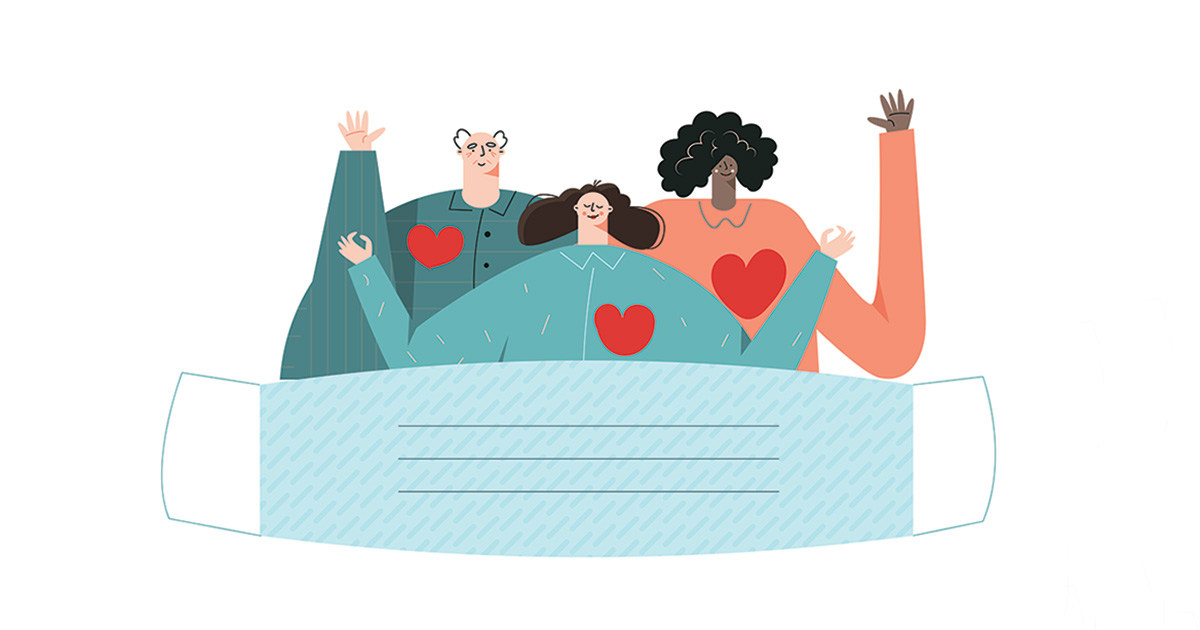
A mild COVID-19 case can damage a healthy heart
Sobering truth here. Even some good news in the COVID-19 pandemic comes with caution flags.
As the number of positive cases spikes, most people infected with the novel coronavirus recover at home. Many of those experience only mild symptoms or none at all.
But …
The American Heart Association reports a growing number of studies show that many COVID-19 survivors experience heart damage, even if they didn’t have underlying heart disease and weren’t sick enough to be hospitalized.
Heart problems usually show up later
“It’s becoming routine to see a patient tell me, ‘I had COVID in March, April, June, July,’ and the observation we’ve seen – me and others around the country – there is inflammation of the heart muscle and the membrane around the heart,” said Chadi Nouneh, MD, medical director of cardiology at OSF HealthCare Little Company of Mary Medical Center.
Heart problems due to COVID-19 tend to show up later, by nature.
Did you have COVID-19?
COVID-19 is a respiratory disease. But as your body tries to fight the infection, your cardiovascular system becomes stressed. Excessive inflammation and clotting can occur. If you have a pre-existing heart condition, you are more likely to become seriously ill. If you haven’t had previous heart problems, you might begin to experience difficulties after otherwise recovering from COVID-19.
Heartbeats that are irregular, too fast or too slow are known as cardiac arrhythmia. This condition is common in people with acute respiratory illness, Dr. Nouneh said. With COVID-19, it seems to be more pronounced.
“We are learning that some patients have long-term pulmonary and lung effects, which can cause some arrhythmia on top of it and needs to be treated,” Dr. Nouneh said. “Anything happening in the body can manifest as a cardiovascular problem.”
Underlying conditions still the biggest risk factor
Heart problems related to COVID-19 can affect all ages, and previously healthy people are not immune to cardiovascular complications.
The people most at-risk, however, are older adults with underlying conditions. Those preconditions include:
The American Heart Association also warns that people who are Black, Hispanic or Latino appear to be disproportionately affected.
“Every patient with heart disease – they are at high risk,” Dr. Nouneh said. “This means that if somebody has congestive heart failure, or weak heart, or blocked artery or cardiac arrhythmia and we add the COVID virus, the outcome is definitely worse than the healthy person with the COVID disease.”
Whether you have underlying heart conditions or not, the effects of COVID-19 can be long-lasting. Much remains unknown.
“We’re watching. We’re learning. We’re treating. We’re monitoring,” Dr. Nouneh said.
Protect yourself and others
Your best protection is to take preventive measures against the virus. You’ve heard them before, but they merit repeating:
- Stay at home as much as possible.
- Wear a mask in public.
- Maintain physical distancing – at least six feet – from other people.
- Wash your hands frequently for at least 20 seconds.
- Try to avoid touching public surfaces.
- Cover your coughs and sneezes.
- Avoid touching your eyes, nose and mouth.